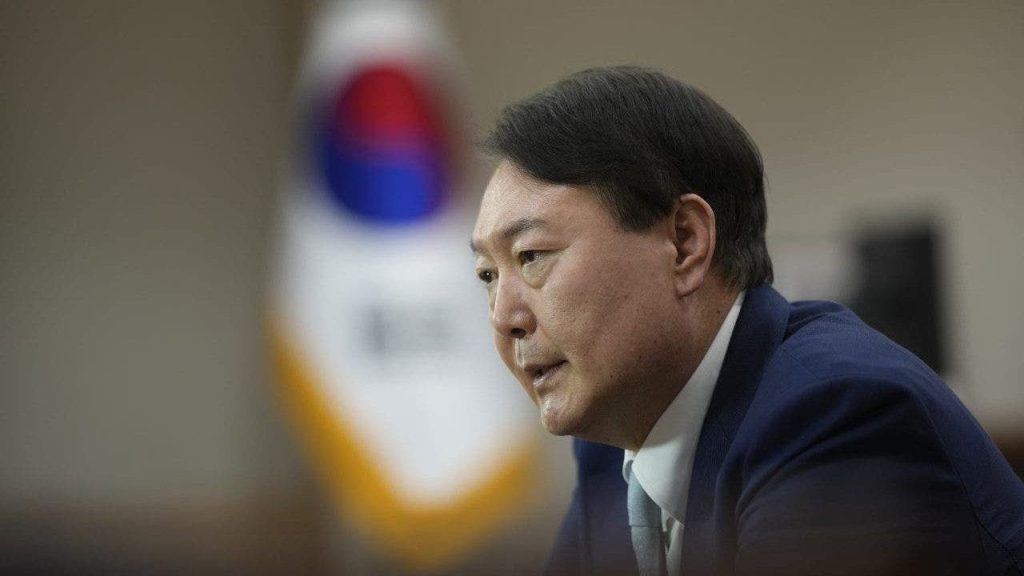The political landscape of South Korea has been thrown into disarray following an attempted arrest of impeached President Yoon Suk Yeol. The standoff, lasting nearly six hours, pitted investigators from the country’s anti-corruption agency against presidential security forces, highlighting the deep divisions and escalating tensions within the nation. The attempted arrest stems from an ongoing investigation into corruption allegations against Yoon, coupled with his controversial declaration of martial law, a move swiftly overturned by parliament and leading to his impeachment. Yoon’s refusal to cooperate with investigators and his confinement within the presidential residence have further complicated the situation, turning a legal procedure into a high-stakes political drama.
The core of the conflict lies in the clash between legal authority and presidential privilege. The anti-corruption agency, armed with a court-issued detention warrant, sought to enforce the law and bring Yoon in for questioning. However, presidential security, citing concerns for Yoon’s safety and invoking a law protecting locations potentially linked to military secrets, blocked their access. This impasse effectively shielded Yoon from immediate detention, raising questions about the balance of power and the reach of legal processes when confronting the highest office in the land. The standoff underscores the fragility of democratic institutions when navigating accusations of executive overreach and alleged corruption.
Yoon’s impeachment, stemming from his short-lived martial law declaration, adds another layer of complexity to the crisis. His attempt to circumvent the opposition-dominated parliament by deploying troops to surround the National Assembly backfired spectacularly, resulting in a unanimous vote to overturn the declaration and initiate impeachment proceedings. This unprecedented move further polarized the political climate and cast a long shadow over Yoon’s presidency, raising serious concerns about his judgment and respect for democratic processes. The impeachment proceedings, coupled with the corruption investigation, have painted a picture of a president embroiled in controversy and struggling to maintain his grip on power.
The legal battle surrounding the detention warrant further complicates the situation. Yoon’s lawyers argue that the warrant cannot be enforced within the presidential residence due to the aforementioned law protecting sensitive locations. This legal maneuver effectively creates a sanctuary for Yoon, shielding him from immediate arrest and allowing him to remain within the confines of his official residence. The ongoing legal challenges and the standoff between investigators and security forces have transformed the situation into a protracted struggle, with the outcome uncertain. The one-week validity of the warrant adds a time-sensitive dimension, forcing both sides to consider their next moves carefully.
Adding to the drama, thousands of Yoon’s supporters gathered outside the presidential residence, braving frigid temperatures to demonstrate their loyalty. Waving flags and chanting slogans, they formed a protective barrier around the residence, creating a visible manifestation of the political divide gripping the nation. The presence of these fervent supporters underscores the depth of public sentiment surrounding Yoon’s presidency and further complicates the task facing authorities attempting to enforce the law. The potential for clashes between protesters and law enforcement adds an element of volatility to the already tense situation.
The future of South Korea’s presidency now hinges on the Constitutional Court’s deliberations on the impeachment vote. Should the court uphold the impeachment, Yoon will be formally removed from office, marking a dramatic end to his tumultuous tenure. However, if the court reinstates him, he will return to power facing a deeply divided nation and a continuing corruption investigation. The court’s decision will have profound implications for South Korea’s political landscape and will set the stage for the country’s future direction. The ongoing crisis highlights the importance of robust democratic institutions and the rule of law in navigating complex political challenges.

